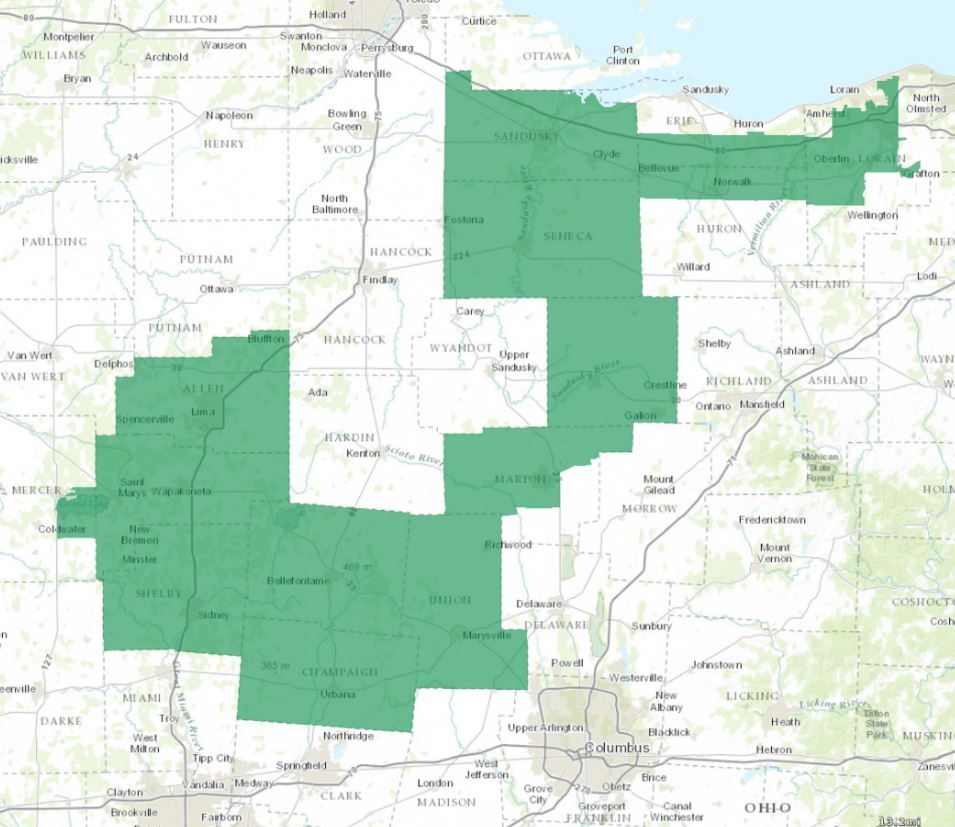By Victor Shi
Getting people to care about — let alone vote in — a mid-summer election is a challenge. People are on vacation. Parents are dealing with their children being at home before they get to send them back to school. The last thing people care about is an election — especially when it is about a state-wide ballot initiative. Or so one might think.
Last week, Ohio voters defied political gravity and expectations, voting in huge numbers to reject a state-wide ballot initiative pushed by Ohio Republicans called Issue One. Issue One purported to increase the threshold to amend Ohio’s constitution from a simple majority (anything above 50%) to more than 60% of the vote. Such an effort, if passed, would have marked the beginning of the end of democracy for Ohio – stripping away the power of the majority of Ohians and giving it to a minority of voices.
But Ohioans across the state – in college towns and in both urban and rural areas – turned out at levels comparable to national and midterm elections. They said in one powerful voice that they will not tolerate this extreme effort pushed by Republicans. As one Republican political operative said to me, “Didn’t Republicans ever think about how extremely unpopular it would be for voters to give up their referendum power?” The answer is, apparently, not. Republicans assumed that no one would pay attention. That, with Issue One being decided in a special election, in the middle of Summer, and about something seemingly esoteric that no one would turn out.
They were wrong. It wasn’t even close.
Young people and women, in particular, saw right through what Republicans were trying to do. Here’s what Ohio voters saw: all throughout the year, Ohioans have been working hard to get a measure on a November special election ballot that would enshrine reproductive rights in the state constitution. In short order, Ohioans gathered the required signatures to set up the November vote.. But instead of respecting the will of the people, Ohio Republicans moved to make it harder for constitutional amendments not only to pass but even to be considered by the voters of Ohio.
Last week’s results in Ohio should send two strong messages to Republicans — and time is running out for Republicans to learn from them if they want any chance of garnering enough votes to win.
To start, Republicans should finally accept that waging a full-on war on reproductive rights does not end well for them — particularly among women and young people. According to an NBC News analysis, “Abortion rights have won in every election since Roe v. Wade was overturned.” They examined the seven states in which reproductive rights were on the ballot – from Michigan to Kentucky and Kansas to Ohio — and found that in each election, the ballot initiatives expanding or enshrining those rights won. In other words: Republicans lost. It is time for Republicans to understand that attacking reproductive rights is more than an attack on bodies. It’s an attack on people’s futures, freedoms, and rights.
And what Ohio showed last week — and is yet another example in a series of cases – is that voters want normalcy. Republicans might believe that their culture war issues will resonate with voters, but what the 2022 midterm elections and special elections in Kansas, Wisconsin, and Ohio demonstrated is that people do not like extreme positions – on either side. Voters do not like their children having to fear whether they are reading the right books. Voters do not like their bodily autonomy and basic rights under siege. And voters don’t like a party that is focusing solely on political retribution against Democrats rather than serious governing.
The immediate challenge for Democrats is to harness what happened in 2022 and in Ohio last week as a way to mobilize voters in 2024 and beyond. Democrats must make it a central tenet of their campaigns to not only talk about abortion but talk about how the Republican attacks on reproductive rights are related to key personal values — from personal freedom to the ability to raise a family.
Democrats also should not shy away from talking about the extreme craziness that is happening on the right and asking voters whether that is the country they truly want to live in. Do voters want to have a president who has been indicted four times, impeached twice, and is a proven rapist? Do voters want to constantly live in fear of losing tomorrow the same rights they have today? Most voters will say no. It’s on Democrats to keep asking those questions whenever and wherever possible.
What happened in Ohio was a direct test of democracy – and voters turned out and defended it. As positive as the news may be, we can’t take anything for granted. We must keep organizing. We must be registering voters. We must keep calling out what Republicans are trying to do. If we don’t, what Republicans attempted in Ohio could be successful across the nation in 2024. And that’s something our country simply cannot afford because it would signal the end of democracy.












